Thoughts of Black American marketers at The LOOMIS Agency.
In the growing era of diversity and inclusion, the advertising industry is still playing catch-up when it comes to joining the conversation, and Black Americans still seemed to be over-shadowed. The Black Americans influence in pop culture, mainstream media, and sports can be seen across the globe. However, here in America, advertisers still struggle with connecting to Black Americans in advertisements. As of 2019 Black Americans make up less than 1% of agency leadership/management and less than 5% of agency talent. In this week’s blog, we wrap up our celebration of #BlackHistoryMonth with commentary from four marketers who are part of the pack here at The LOOMIS Agency. It’s their hope to bring greater perspective to the conversation while challenging the ad industry to do better.
How have Black Americans & Black Culture impacted the advertising industry?
“From the music used, the word choice, to the slang. Black consumers have money and represented an untapped market for brands during the early 1960s – it was only natural that ads featuring black people doing black things began to arise. It’s awesome to see people that look like yourself in commercials and media.” — Danny
“There’s no short way to answer this question as Black Americans have impacted every aspect of the advertising industry. I think the biggest impact Black Americans have had on the industry is helping mainstream advertisers and big businesses understand (and appreciate) the various nuances in reaching the black audience. Important figures like Clarence Holt and Tom Burrell believed the Black American community couldn’t be reached with the same messages made for the mainstream media because there were very few representations of black culture for the demographic to identify with. Holte, Burrell, and many others explained that Black Americans needed to see advertisements which represented black culture in a fair and authentic way, something that hadn’t been accomplished with the ads they were currently being served. This idea eventually led to large-scale campaigns that incorporated many elements from black culture and spoke directly to the Black American community. Today, black culture’s influence can be found in many forms. From iconic campaigns like Sprite’s long-running Obey Your Thirst campaign, which has always been centered around hip-hop, to the agency the community now has to call out advertisers for incorrect, harmful, or non-inclusive representations.” — Briana
“‘Black Culture’ is layered and complex, yet parts of it have been ever-present in advertising throughout history. Whether it’s music like the California Raisins ad featuring I Heard it Through the Grapevine by Marvin Gaye or Lizzo’s Water Me for Walmart’s Black Friday commercial to the iconic Pepsi ad with Michael Jackson or the Nike “Dream Crazy” ad featuring the controversial Colin Kaepernick.
Black Americans like Carol H. Williams, Tom Burrell, Steve Stoute, and the Brown & Browner Agency of Columbia South Carolina, just to name a few, have been deliberate and mindful in impact on the advertising community. Tom Burrell was the first to connect/introduce hip hop with a national advertisement while Brown & Browner agency founder Derek Walker has used social media to spotlight talent of color in the advertising industry. Walker’s hope is that this will spark conversation and industry-wide change.” — Rachel
“The power of our culture is really something special. The versatility that we bring to industries makes us so unique. From music to beauty, style, and our perspective, we are forcing brands to stand for something and be more inclusive. Let’s take the beauty industry for example: because of black consumers, brands are now looked down upon when products/lines are launched that have limited shade range and or colors not made for a wide variety of skin tones. Our demands and expectations are higher for brands and, when those demands are not met, there is potential to lose the black consumer.
Black Twitter is a perfect example of black influence. This social media group has helped impact brand sales and messaging for advertisers like Popeyes, Taco Bell, IHOP, and Jimmy John’s. University of Virginia assistant media studies professor Meredith Clark defines Black Twitter as “a network of culturally connected communicators using the platform to draw attention to issues of concern to black communities. It’s the culture we grew up with. It’s the culture we experienced in our lives and school, in the workplace, with entertainment – and you see conversations coalesce around specific cultural moments.” The name Black Twitter took shape around 2010: Farhad Manjoo, who was writing for Slate at the time, wrote an article called, “How Black People Use Twitter,” and the response to it on Twitter was fierce. People truncated the headline to “Black Twitter.” (University of Virginia newsletter November 28, 2018)
We have the power to make things extremely popular or even tarnish a brand or product. Our culture is very influential. Pretty much every person, brand, and industry is inspired by black culture.” — Jazmine







